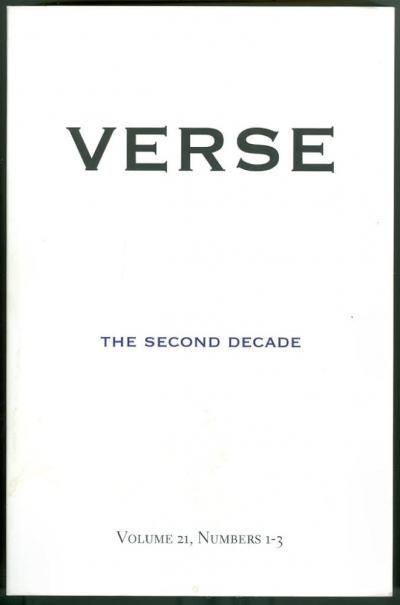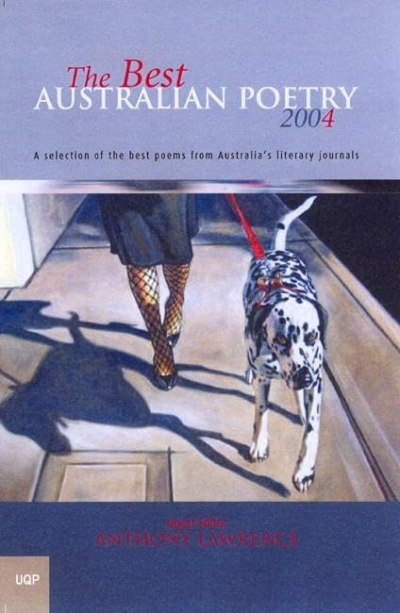Brian Henry
Just before I left sleep behind
I borrowed a series of chords
so I could swerve my way through
the days I saw yawning in front
of me like graves freshly dug ...
Verse: The second decade vol. 21, nos. 1-3 edited by Brian Henry and Andrew Zawacki
by David McCooey •
The Best Australian Poetry 2004 edited by Anthony Lawrence & The Best Australian Poems 2004 edited by Les Murray
by Brian Henry •
The Ghost Names Sing by Dennis Haskell & Album of Domestic Exiles by Andrew Sant
by Brian Henry •



